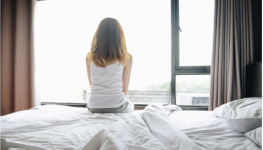Women’s health
Whatever your age or your lifestyle, your health should be a priority. Get the guidance on key health topics, such as periods, menopause and endometriosis, along with everyday wellbeing advice.
How can we help you?
Common women's health topics
Period health
Get advice on managing symptoms like heavy, painful or irregular periods. We’ve got tips for you or how to help loved ones.
The menopause
Understand if symptoms are signs of the menopause, what to expect and how to get support for yourself or someone else.
Endometriosis
A lot of people don’t know what endometriosis is. But we do, and we’re here to help you manage symptoms.
Period health and symptom management
If you or someone close is experiencing heavy, painful or irregular periods, we can help.
Get the facts about common conditions
Everyone’s period is different, but if it’s affecting day-to-day activities, there are ways to manage it.
Manage symptoms with a personalised care plan
You don’t have to face period problems alone. Spend time with a GP who’ll listen and create a personalised plan for your period symptoms. You also get 24/7 nurse support by phone – there for whenever you need it. Available to anyone over 18.
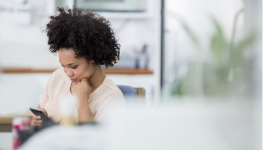
How to track symptoms at home
Log your symptoms in our ready-made diary to learn about your cycle. This can help a GP spot patterns too.

Coping with painful or heavy periods
Dr Samantha Wild explains what heavy periods are, how to manage symptoms and when to see your doctor.
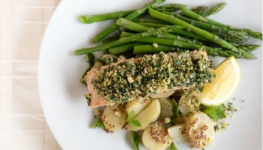
Natural remedies for period pain
Learn how changes to your diet and lifestyle can ease period pain naturally.

Talking to children about periods
Starting the conversation can ease worries and help them feel prepared. Get tips on what to say and when.

Can lifestyle changes improve my periods?
Eating, sleeping and exercising. Dr Samantha Wild gives her tips on how lifestyle changes can reduce period pain
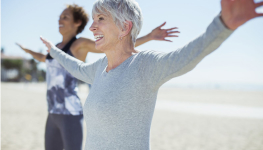
How do periods change over time?
From puberty to the menopause, your periods will change as you age. Dr Samantha Wild talks about what you can expect over time.

The menstrual cycle: your common questions answered
Learn what the menstrual cycle actually is, along with information on what’s normal and when you should seek help
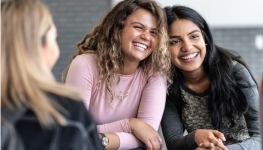
Myths about menstruation
What is it? What’s the normal duration of a cycle? Find out more about menstruation as we answer your questions.
Period health
Are my periods normal?
Heavy periods | Blood clots | Conditions
Watch in 5 minutes
Dr Zoe Williams answers some common period questions and explains what's normal. She'll also help you to understand what's going on with your body, and what you can do if something isn't right.
How do you know if your periods are normal?
Well, it's really difficult because we're all different and we all experience different periods.
But I'm joined today by Dr.Sam Wild who's the Bupa clinical lead for women's health and we're gonna share with you a few tips around what you should be looking out for to identify that maybe something isn't quite right.
So Sam, let's start off.
What should period blood look and smell like?
So you might notice, to start, at the start of a period, your period blood is a light pink colour.
That's as the blood mixes with the cervical mucus that's there.
So pink is normal.
Bright red next is when the blood is at its fastest, it's leaving the body quite quickly, so usually at the start to the middle of the period and then this can go a darker red, brown and even look quite black.
And that's a sign that the blood's taken a little bit longer to come out of the body as the flow has slowed down a little bit and it's come in to contact with air and oxygen and that's what makes the colour change.
So all of those colours are completely normal.
Orange, yellow colours, grey colour, that can be a sign of infection.
So if you notice anything like that, then you should be speaking to your doctor.
Blood smells a bit metallic.
You know that if you've ever cut yourself as well.
But if there's a really offensive odour to it, particularly if you've got any itching or soreness as well, then I would definitely recommend that you see a GP as again, it might be a sign of infection or something else that's going on.
What about periods and heaviness and flow?
How heavy is too heavy?
So there's lots of different things that you can look out for here.
So if you're changing your pad or your tampon more frequently than every one to two hours, then that can be a sign that your period is quite heavy.
If you're needing to use two products together.
So if you're using a tampon and a pad or two pads, again, that could be a sign.
If at night you're flooding through into your bedding or you're leaking into your clothes during the day, again that's another sign.
If you're passing big blood clots.
So it's normal to pass some small clots, but if clots are bigger than the size of say a 10 pence piece, that's also something that I would, you know, recommend that you go and speak to your doctor about.
Okay, and then there's something around quality of life, isn't it?
If it's stopping you from going to work, going to school, doing the things that you normally would want to do.
Exactly, if you are feeling really tired with it, if you're feeling short of breath as well, that could be a sign that you're anaemic.
So yeah, again, in those situations, go and speak to your GP.
And what sort of conditions might cause very heavy bleeding?
So a very common one is fibroids.
So these are benign growths of the uterus, of the womb, which can cause heavy bleeding.
Endometriosis is very common too.
Polycystic ovarian syndrome.
And then there's other conditions, such as an underactive thyroid, and plenty of other things that the GP will be trying to exclude.
Okay.
What about period pain?
Period pain to some extent is normal.
Most of us experience it, but when is it too much?
So yeah, as you said, period pain, normal.
The uterus is contracting to make the lining leave the body, which is what we see as a period.
Again, if it's stopping you doing your normal daily activities, if you are losing time off school, off work, that is not normal.
So very simple really.
If it's really stopping in your tracks, go and see your doctor.
And people can try things like paracetamol, ibuprofen, which tend to be helpful for most people, don't they?
But if you've tried that and it's making you miserable.
Stomach massage too, exercise, those sorts of things can all help.
But if it isn't enough, then do go and seek some help.
And finally, what about how our menstrual cycle affects our emotions?
Is it normal to be up and down and all over the place?
It absolutely is.
And that's because our hormones are changing throughout the month.
So in the first half of our cycle as oestrogen levels rise, that's when we feel at our best, we feel our most energetic.
And then in the second half of the cycle, as the progesterone levels rise, that's when we can feel sort of quite slowed down, can feel quite low as well.
And that usually continues into the first bit of your period too.
So it is absolutely normal, what we call premenstrual symptoms.
But again, if you're finding that it's affecting your life and you're not able to continue as normal, then you must seek some advice.
Yeah 'cause there are things that your GP can do to advise you and support you to alleviate some of these symptoms, aren't there?
There are.
There's lots of medications that can be tried.
So definitely worthwhile going to have a chat with them.
Thanks, Sam.
So you've indicated there are four key areas that people can look out for things not being quite right.
So the look and the smell of the blood, how heavy the period is, how much pain, and also how it impacts mood.
I think the final thing to say is that you know your body better than anyone else.
So if something's changed or you're not happy, get it checked out by your GP.
Transcript
Who are you?
Hi, my name is Dr. Samantha Wild. I'm the Women's Health Lead for Bupa Clinics.
In this conversation,
please feel free to ask me anything you'd like about your periods.
Should I use a tampon?
So it's completely up to you if you want to use a tampon or not.
Some women prefer it because it's less messy because it's very
discreet. It goes inside the vagina.
But some women don't like the idea of putting something inside,
so they'd rather use a pad instead.
What is endometriosis?
Endometriosis is a condition when the cells that are normally found line in the
uterus that cause a period each month are found elsewhere in the body.
And just like they would with the menstrual cycle they shed each month,
but as there is no way for them to leave the body,
they can cause local inflammation and scarring.
So these cells are commonly found around the ovaries,
the ligaments between the ovaries and the rectum along the fallopian tube.
And they can also be found within the bowel, the bladder, and the lungs,
and they can all cause symptoms wherever they may be.
Can my period make me feel more anxious?
Your period can definitely make you feel more anxious as just before you have
your period. The progesterone levels rising will increase your cortisol,
your stress hormone. Also,
we may dread what's going to happen at that time of the month not want to feel
in pain, not want to feel tired, and lack of energy,
and not want to feel bloated.
So it's understandable that you may dread that time of the month coming.
Why do I feel so rubbish during my period?
You might feel rubbish during your period because of what is happening to your
hormones. Our oestrogen and progesterone levels are lowest at this time,
which affects our mood.
You might also feel a bit bloated and you might have period cramps,
which can make you feel uncomfortable and in pain and you might feel that your
self-esteem is lower at this time and feel more self-conscious about your body.
You might also get a breakout of spots.
It's not unusual to find this at the time of the month,
so it's not unusual that you would feel pretty low at this time.
Do periods smell?
So periods might smell slightly and this is due to the blood,
and also it can be a bit metalicy due to the bacteria within that,
but it shouldn't be offensive.
If you find that your period is stronger smelling, or if it's fishy,
then you ought to get checked out, as that may be a sign of infection. Also,
sometimes women unfortunately leave a tampon behind and this can cause a
horrible odour. In these cases you normally know about it,
it does smell quite rotten. So in these cases,
do remove the tampon as soon as possible or get assistance to do so if you're
unable to yourself.
How can I be more comfortable on my periods?
There's lots of ways to make your periods more comfortable. So firstly,
I would just listen to your body and do what it's asking you to do.
If you feel you need to relax a bit more and be a bit more quiet at that time of
the month, then do that. Equally, if you feel you can exercise,
then that can be really beneficial to help reduce pain and release some
endorphins.
Even some gentle exercise like yoga or Tai Chi can be really beneficial.
Try and eat healthily - that's really important,
and don't drink too much alcohol as that can affect your mood even more.
Try and wear loose fitting clothes if you feel bloated and if you feel that
tighter clothes are restricting you,
and make sure that you get enough sleep at night as well as this can really
help. Try and reduce stress as much as you can,
as you might not feel as able to deal with it this time of the month than at
other times of the month.
At what age do periods normally start?
Your periods usually start between the ages of 10 and 16,
but for some it may be slightly earlier or for some it may be slightly later and
still be completely normal.
If you haven't started your periods by the age of 16,
we usually advise that you see your gp,
but everybody usually starts at the time that's right for them.
And this is thought to be related to genetic and environmental factors.
When will I stop having periods?
So you stop having periods normally when you reach the menopause,
and this is when your ovaries are no longer producing estrogen and so you stop ovulating
and you are no longer able to have children. For most,
this will happen naturally between the ages of 45 and 55,
and the average age in the UK is about 51, but for some,
it may happen for other reasons,
such as surgery or due to certain medications or things like chemotherapy
or radiotherapy. Before your periods stop
You usually know that it's coming because you start to suffer with some of those
symptoms due to low oestrogen,
and these can include hot flushes and night sweats, mood changes,
brain fog, headaches, abdominal pains.
There's a variety of different symptoms that some women may experience,
and it's unique to everybody.
What is the point of a period?
The point of a period is to get rid of the unwanted endometrial lining,
so the lining of the womb of the uterus each month that is no longer needed to
support a pregnancy.
This builds up throughout our menstrual cycle so that if an egg is fertilized,
it can implant and carry on to grow. But if we don't get pregnant,
and if the egg isn't fertilized,
then this can be shed at it as it is not needed.
Are pads or tampons better for me?
It's up to the individual to decide if pads or tampons better suit them.
A lot of women prefer using a tampon because they find it's more discreet.
It goes inside their vagina to soak up the blood.
And so they can use wear tight fitting clothes without worrying that a pad may
be seen and they can get on with their normal daily activities.
And they can also swim and exercise comfortably with them. However,
some women may feel a bit squeamish about using tampons,
putting something inside, and so they would rather use a pad.
So it's completely up to you.
Are there different types of tampons?
There are different types of tampons and I would divide it up into three.
So there are tampons that have a paper applicator.
There are tampons that have a plastic applicator, which is often more rounded,
and there are ones that don't have an applicator at all where you use your
finger to insert it. They also come in different absorbances as well.
Some are made for sort of lighter periods.
Others are made for heavier periods or for overnight.
So sometimes you may need to take a bit of time finding what is right for you,
which one you feel more comfortable using.
Does using tampons hurt?
Using a tampon shouldn't hurt.
We advise that you make sure that you're very relaxed before you put it in.
Get into a comfortable position following the instructions in the box carefully,
and then insert the tampon if you can feel it inside at that point,
it may be that you haven't inserted it properly,
so we do advise that you remove it again straight away.
Sometimes it might be that you are using too high an absorbency and so the
tampon is getting quite dry. So in those cases,
I would drop down the absorbency level that you're using and try again.
Why do I seem to poo more on my period?
So it's normal to feel that you might need to open your bowels more whilst
you're on your period.
Due to the effects of our hormones just before our period,
when our hormone levels are increasing,
before they decrease the progesterone levels,
increasing can have a constipation effect. Then when we reach our period,
these progesterone levels have dropped and so we might need to open our bowels
more. And also we release prostaglandins at the time of our period.
These help our uterus, our womb to contract and help expel that period blood,
and it can also have an effect contracting the bowel too.
Does using a hot water bottle actually help?
Using a hot water bottle can really help with period pains,
and this is due to two reasons.
So the first is that using the heat can help the muscle wall of the uterus
relax. And when this contracts to get rid of the period blood,
this is what causes pain. So by relaxing it, that can help.
We also know that the heat locally apply to the skin can affect our heat
receptors,
and this will sort of mimic or mask any pain that's coming from the pain
receptors so you won't feel that.
Does a tampon take a woman's virginity?
Using a tampon for the first time does not take away a woman's virginity.
Only having sexual intercourse can do that. It may stretch or tear the hymen,
but that does not mean that you've lost your virginity.
Is period blood the same as my normal blood?
Period blood is not the same as your normal blood.
So period blood consists of the lining womb,
which is what we shed each month when we have a period and that has been inside
the womb waiting for an egg to be implanted. So if we haven't got pregnant,
then we don't need that anymore.
It also consists of cervical mucus and vaginal secretion,
so it's definitely not the same as the blood that's circulating around the rest
of our body.
I haven't had a period for a few months. Is this normal?
If you haven't had a period for a few months, first of all,
I would consider whether you are pregnant.
If you've had unprotected sexual intercourse,
you should definitely do a pregnancy test.
Then consider if there's any other reasons why you may not have had a period.
You may be a bit stressed, you may have suffered from some illness recently.
You might be on certain medications that can affect your period too.
If you're feeling well and none of those things apply to you,
then it's probably absolutely fine and it's just one of those things,
and we'd say up to three months. That can be completely normal.
If after three to six months you haven't had any periods,
then I would advise then that you're going to see your GP.
And of course if you do feel unwell.
Can I still have sex during my period?
You can have sex during your period and it's very important that you still
consider contraception and protection against sexually transmitted infections
during this time.
You ought to warn your partner first because obviously it might be a bit messy,
but actually the endorphins that are released during having sex may help you
with any pains that you're experiencing during your period.
What is the correct way to use a tampon?
The correct way to use a tampon is always to read very carefully first
the instructions within the box.
We would always advise good hygiene and then try and relax
Before you put the tampon in
you'll read in the box and you'll see the instructions on how you should be sat
when you're doing it.
So some people find sitting on the toilet helps or squatting or putting one leg
up onto the toilet, and then just follow the instructions to insert it.
You shouldn't feel any discomfort once it's in. If you do,
then you need to take it out and put it back in again.
Do all periods last exactly one week?
So most periods will not last one week. Everybody is different.
So they can range from three to eight days, and the average is about five days.
My bleeding seems really heavy, what should I do?
We'd always advise that you see your GP if you feel that your bleeding is
unusually heavy. However,
sometimes periods can seem heavier than they actually are,
so we only should lose about three tablespoons of blood during the average
period, although it can seem a lot more than that.
So what we'd say is look out for any big blood clots.
So more than two and a half centimeters or the size of a 10p coin is considered
to be large.
If you are changing your sanitary protection more than hourly, then again,
that can be a sign that your periods are heavier than they should be,
or if you're leaking through your clothes or into your bedding at all.
Other signs may be that you're feeling very fatigued or you might be feeling
short of breath,
or if you feel that your period is just generally affecting your activities of
daily living.
Do males have a period?
If you were born with male sexual organs,
then you won't have a period because you need to have a womb and ovaries to
enable you to have a period. If however,
you were born with female sexual organs,
but now identify as a male or non-binary, then you may still menstruate.
So menstruation is not just a female condition.
What are the symptoms of endometriosis?
The common symptom of endometriosis is pelvic pain,
and this pain usually starts before the period and continues throughout the
period as well.
And some women may find that they need to take strong painkillers to try and
ease this. It can also be associated with fatigue and heavy periods too.
Some women may also suffer problems with their fertility,
and this is because the scarring can occur around the ovaries and the fallopian
tubes.
And some women may find that they have problems with constipation or diarrhoea
and feeling sick as well because of the pain and maybe because of the resulting
impact on their fertility too.
It's not unusual to feel quite depressed when you do suffer with endometriosis.
For about 10% of women, they may also suffer with other problems,
so the endometrial cells can grow inside the bladder and the bowel,
and you might find that you are passing blood in your urine or your stool at the
time of the month.
And you can also get endometrial cell within the lungs as well,
so you can find that you cough up blood.
Is endometriosis a serious problem?
Endometriosis can be a serious problem because it can cause a lot of symptoms
For a woman, she may be in a lot of pain. She may get quite depressed with that.
She may suffer with problems with her fertility too,
and it can have a huge impact on her home life and her working life,
and it can affect the UK economy with up to 8.2 billion pounds a year
in lost days at work and healthcare costs.
I might have endometriosis, should I see a doctor?
You definitely should see a doctor if you think you have endometriosis,
as you may need to have some help with the pain that you may be experiencing.
Or it might be that you are having problems with getting pregnant and that is
something that you wish to discuss with the doctor as well.
We know that about 10% of women may suffer with endometriosis,
but many of these women are not diagnosed and it can sometimes take up to 10
years to get a diagnosis,
and endometriosis can actually cost the UK economy 8.2 billion
pounds a year in the problems that it creates.
What are the risks associated with endometriosis?
Endometriosis can cause chronic pelvic pain due to the scar tissue that forms
each month, and this can attach to internal organs.
These attachments are called adhesions, and these can also distort the bowel,
so that can cause a lot of pain and discomfort.
You are also more likely to develop ovarian cysts if you have endometriosis,
which again can be very painful. And there's also the fertility issue,
so we're not entirely sure why this happens,
but up to 50% of women may suffer with problems with their fertility.
It might be that the endometrial tissue is growing over the ovaries and their
fallopian tubes,
but even people that suffer with mild endometriosis may have problems with their
fertility too.
What treatment is available for endometriosis?
For someone needing treatment for endometriosis. Firstly,
I would suggest that they get some support and counselling,
and this may be from their GP or it may be from a charity such as Endometriosis
UK, who can provide invaluable support. Next,
we'd need to talk about whether any pain relief is needed
and this may be in the form of painkillers or anti-inflammatories,
or it may be the doctor needs to prescribe something stronger.
Then to actually treat the endometriosis, we can use hormonal treatments,
and this can dampen down the patches of endometriosis,
and so this may be in the form of tablets or sometimes it can be given as
injections as well.
If a woman is trying to get pregnant or if their hormonal treatments haven't
worked, then sometimes we'll use invasive surgery,
so surgery that will go in keyhole initially and burn away areas
of the endometriosis.
And this can increase your fertility after this has been done,
as it will get rid of all the endometriosis tissue for you.
If they can't do this by keyhole,
they may need to do it through a more open incision,
which we call a laparotomy. And finally,
if none of these treatments work,
then some women may need to have a hysterectomy. This is the last resort,
but this is when the womb and the ovaries and the fallopian tubes are all
removed to remove any areas of endometriosis that are still there.
Can endometriosis cause ovarian cancer?
1.3% of the general population will develop ovarian cancer compared to
just less than 2% of those who suffer with endometriosis.
So this is not statistically significant.
So most women with endometriosis will not develop ovarian cancer.
For those that do,
they are more likely to get diagnosed early and so they have a longer
life expectancy.
We'd always advise someone with endometriosis to look out for any abnormal
signs, and if they feel that they're feeling anything different to normal,
then they should consult with their GP.
Are periods different in different cultures?
So everybody's periods are different. There has been research into this area,
but very little has been found.
What we do know is that your weight may play a part as may your diet,
and certain genes that can run in families and cause particular illnesses may
affect your periods too.
What does differ is the way that different cultures also approach periods so
that you can find that it's very much still a taboo subject in certain
ethnic groups and is not very much spoken about.
What does PCOS do to my period?
PCOS will make your period irregular.
So it's not unusual for women to have less than eight periods a year or not at
all.
How is PCOS treated?
PCOS can't be cured, but it can be treated.
We'd start by advising that someone follows a healthy, balanced diet,
and if they have weight to lose,
then to try to lose it as this will help with any excess insulin that's within
the body and this can help with some of the symptoms. Next,
if they've got excess hair that they need removing,
we would talk about ways that they can safely do this.
And if they're suffering with acne, bad skin,
then there are medications that we can prescribe to help with this too. Next,
it depends on what the woman is trying to achieve at that time in her life.
So if she isn't trying to get pregnant,
we may give her medication to help her establish a regular menstrual cycle.
And if she is trying to get pregnant,
there may be medications that we give her to try and help her to ovulate.
And also there is surgery that we can offer which is done laparoscopically,
so via a keyhole telescope into the abdomen.
And what we do is we burn away areas of the ovaries that may be producing excess
hormones. And this, again, can help establish a regular menstrual cycle.
How do I know if I have endometriosis?
There are several symptoms that might make you suspect that you have
endometriosis. In which case I'd recommend that you see a GP.
These can include pelvic pain,
pain that is particularly worse before your period and during your period. Pain
that you experience with intercourse or having a smear test.
You may feel that your periods have become a lot heavier or you may feel
particularly fatigued with no energy.
Some women also suffer with constipation or diarrhoea or vomiting or can
find that it affects their mental health as well.
Up to about 10% of women will also suffer with more unusual symptoms,
and this can include bleeding from the bowel,
so you see blood in your stool during the time of your period or bleeding from
the bladder, in which case you'd see blood in your urine.
Some women also cough up blood. If you feel that you have got these symptoms,
I'd recommend that you kept a diary for about three months,
so you could take this to show your GP and they may then use this to help
diagnose you.
They're likely to examine you and they may trial you with some treatment.
Some GPs will refer you to the hospital to see a consultant for a more
definitive diagnosis,
which is made by putting a camera into the belly button normally, under general
anesthetic and having a look inside the abdomen.
What is the main cause of PCOS?
Unfortunately, we don't know what causes PCOS, but it can run in families.
We know that it is associated with abnormal hormone production,
and women often suffer with excess levels of insulin and their bodies are often
resistant to this. This excess insulin can produce higher levels of testosterone,
which is the male hormone,
and this affects the body to cause a lot of the symptoms that we see.
What are the signs or symptoms of PCOS?
Symptoms of PCOS include irregular periods,
so women may find that they have eight or fewer periods a year,
or they may completely stop. They may also find it difficult to get pregnant.
A lot of women struggle with their weight and find that they are overweight and
it's difficult to lose it again.
They may find that they have hair in unwanted places,
or may find that the hair on top of their head thins.
They may also suffer with acne,
and it's not unsurprising that due to these symptoms,
they may suffer with depression and lower self-esteem and lower self-confidence.
Does having PCOS stop me from having periods?
PCOS usually results in eight or fewer periods a year, but for some women,
they may stop completely. These usually return with effective treatment.
What is PCOS?
PCOS stands for polycystic ovarian syndrome and is a disorder of the ovaries.
Normally each month,
an ovary will release an egg and they will take it in turns to do so.
This egg will develop in what we call a follicle,
which is a fluid filled sack within the ovary, and many follicles will develop,
but only one egg will fully develop and be released.
When you have polycystic ovarian syndrome,
you have about 12 of these follicles or more,
and the egg never completely matures so you don't release an egg so you don't
ovulate each month, and your periods can be very irregular with it.
And this is also associated with other conditions.
You can have too much of certain hormones,
and so you might find that you have excess hair where you shouldn't have hair.
You might find that you don't have a full thick head of hair,
and you might find that you suffer with acne and problems with weight gain and
being able to lose weight again.
What happens if endometriosis is left untreated?
If endometriosis is left untreated, some symptoms may improve,
but this is unlikely. In most cases,
symptoms will stay the same or they will worsen.
So you run the risk of developing chronic pelvic pain due to all the scar tissue
that is forming inside,
and this can affect your fertility and any chronic debilitating condition
may have a negative impact on your mental health.
What age does PCOS usually start?
PCOS usually starts when a girl has gone through puberty.
So in the teenage years or in early twenties.
How long should a period last?
So a period usually lasts between three and eight days,
but the average is about five days.
I feel uncomfortable going out on my period. What should I do?
So it's understandable to feel conscious when you go out on your period.
At the time of the month, you might feel a bit more bloated,
you might be a bit spotty, you might be in pain as well.
So try and think about things that can make life easier.
So avoid tight fitting clothes if you are feeling a bit bloated,
think about what sanity protection you might be using.
Some people find that pads are bulky,
so they may prefer to use a tampon instead,
look after your skin the best that you can.
Drink plenty of fluids - that can help reduce bloating too,
and try and eat healthily. And at the end of the day,
if you don't feel like going out, then don't go out.
Stay at home and relax instead.
It can sometimes be a good time just to unwind a little bit.
Is it normal to clot during my period?
It is normal to clot during your period usually for the first few days when
you're at your heaviest and it's not unusual to see lots of small clots,
particularly if you've been laid down for a while and the blood's had chance to
accumulate in the womb. However,
if the clots are big and we'd say normally bigger than two and a half
centimeters and think of a 10p size coin,
then that's when you should see your doctor,
and particularly if you are changing your sanitary protection every hour as
well, or if you're flooding and leaking through your clothes.
What should my period look like?
Everybody's period is different and it changes in colour and consistency
throughout the month, but usually at the beginning of your period,
you may find it's a darker red in colour. That's when it's at it's heaviest,
and the blood may clot.
Then as you go on through the week and the blood gets free of flowing,
it can turn a brighter red or a pinkish color,
and then usually towards the end of your period when it's older blood,
it turns the brown or even a black colour.
If it's grey or if it's greenish in colour, that may be a sign of infection.
So if you do think you're at risk of infection or if there's a particular odour
with it, or if it's particularly painful,
then I would advise that you see a GP then.
Why do we call it menstruation?
Menstruation or menes comes from the Latin word menses,
which means month as our periods tend to happen every month.
Why do we even have periods?
So we have periods each month.
It's the body's way of shedding the lining of the uterus and the lining of the
uterus or our womb is what builds up in anticipation of a pregnancy.
So if we don't get pregnant, if the egg isn't fertilized,
then the body gets rid of this lining ready for the next cycle when the possible
pregnancy may occur.
Is PCOS common?
PCOS is very common. It's thought to affect 1 in 10 women,
although many won't realize that they have it.
Up to 50% of women won't suffer with any symptoms.
Is PMS even real?
PMS is definitely real.
We know that up to 80% of women will suffer PMS each month,
and this is due to your hormones fluctuating. So at this time of the month,
you may find that you suffer with headaches, fatigue,
bloating, bad skin. Your stomach may be upset as well.
You may suffer with sore breasts,
and all of this is completely normal as our oestrogen levels are dropping.
Can I get pregnant on my period?
You can get pregnant on your period, although it is very unlikely,
but you need to remember that sperm can stay alive inside the body for up to
seven days. So if you ovulate very quickly after you've had your period,
if you have a short ovulation cycle,
then there is always going to be that risk there.
Should I wear a sanitary product all day?
So some sanitary protection can be used for longer than others,
so period pads can be used for about four to eight hours as can
tampons or menstrual cups.
And the reason that we advise this is because we don't want to increase your
risk of getting any infection or irritation from using them,
but period pants can be used for a much longer period of time,
so usually up to about 10 to 12 hours.
We advise that you wash those and change them when they start to be feel a bit
heavy and a bit full, but they can be very useful for using overnight.
How often should I change my sanitary pad?
You should change your sanitary pad every four to eight hours.
This is just to prevent any unpleasant odours from building up and prevent any
irritation if the pad is becoming a bit damp.
What is a period?
A period is made up of the lining of the womb that is shed each month if a
pregnancy hasn't occurred,
and also contains cervical secretions and vaginal secretions too.
Do period pants work?
Period pants definitely work and a lot of women prefer using them now because
they're eco-friendly and they're reusable,
so you can save on those expensive costs of sanitary protection each month.
They tend to be very absorbent.
They also very good at eliminating odours as well,
and they can be used for a longer period of time than you can with normal
tampons or pads. So they can be used for sort of up to 10 to 12 hours.
So they're very good to be used overnight as well.
Can I wax or shave when I'm on my period?
So, yes, you can wax or shave when you're on your period,
but you just need to remember that your pain receptors are heightened during
this time so it may feel a little bit more uncomfortable than normal,
so you might want to schedule that waxing appointment for after your period.
Also, remember, you might feel a little bit more embarrassed at this time,
so if you do go and get waxed, you may prefer to use a tampon.
What shouldn't I do when I am on my period?
There's nothing you shouldn't do when you're on your period,
but there may be some things that you would feel better not doing when you're on
your period.
So if you find that heavy exercise or intense exercise is a bit too much for you
because you're feeling tired,
then I would advise avoiding that and maybe just do some lower impact exercise
instead.
We would advise not to drink too much coffee when you're on your period and not
to eat too many sort of processed foods or sugary foods,
even though you might feel you're craving them as they can make you feel more
bloated and just feel generally worse throughout that time.
Don't drink too much alcohol because even though you might feel that that can
help relax you, it can lower your mood as well.
So just do things that you feel make you feel a bit more comfortable.
Tight fitting clothes may not be good idea at that time of the month as well but
you know what's best for you.
What causes developing periods later then usual?
So we don't really know why some girls develop their periods later than others.
This is all down to environmental and genetic factors.
But we do know that our weight can play a part.
Our diet can play a part, but for most girls,
we would expect them to have started their periods by the age of 16.
So if they haven't, by then, we would advise that they see a GP.
Should I have unprotected sex during my period?
So we wouldn't advise that you had unprotected sex whilst you're on your period.
One, because there's always a chance that you can get pregnant.
Sperm can survive in the body for up to seven days after your period.
So there's always a chance that you may ovulate early and get pregnant.
And also, there's always the risk of sexually transmitted infections,
which you're susceptible to throughout your menstrual cycle.
How do I know if my period is too heavy?
You'd know if your period was too heavy, if it just didn't feel right,
basically.
So if it's very different to how it's been before. We say that if
you are losing clots bigger than a two and a half centimeters or a 10p
size, then that isn't right.
If you're changing your tampons or your pads more than every hour,
then also that's something to consider talking to your GP about.
If you find that you are flooding through your clothes or leaking into the bed
at night, then that can be a sign too,
if you're feeling very fatigued with it or you're feeling short of breath,
and particularly if you're having to change your normal activities of daily
living, so if you're not able to go into work or into school, then again,
that is a sign that your period may not be quite right.
Should I go to bed without a pad?
You can go to bed without a pad at night,
but you just need to consider that you might therefore leak into the bed linen.
We know that it might seem that your period stops at night,
but this is often just because you're lying down so the blood isn't being shed
from the uterus and the vagina because you're not stood up against gravity.
As soon as you cough or move, or if you do stand, that blood may come away.
So I'd advise you really to either use a pad or you might prefer to use some
period pants, but definitely use some sort of sanitary protection overnight.
Can being on my period affect my mental health?
Being on your period can definitely affect your mental health.
So in the time leading up to our period, what we term our luteal phase,
our oestrogen levels are dropping and this can affect our happy hormones,
our serotonin levels and our progesterone levels rise,
which affects our stress hormones, our cortisol levels,
and then they drop as well. So by the time you reach your period,
you can actually feel quite low and also understandably as you come on your
period, if you're not looking forward to suffering with menstrual cramps and the
bloating and the headaches and all those other horrible symptoms that you can
get around the time of the month,
it's not unusual to feel pretty rubbish around that time.
Does smoking impact how I feel during my period?
Smoking definitely impacts how you feel during your period.
We know that smoking is linked with higher levels of premenstrual syndrome,
so women who smoke are one and a half times more likely to suffer with this,
and it can also increase your pain from your period cramps as it causes the
blood vessels to contract in the uterus.
Does every woman have a period?
So not every woman will start their period.
So it is important if you haven't started your periods by the age of 16 to go
and see a doctor.
We do know that certain genetic factors can play a part, certain illnesses
and medications can too.
So it's always worth getting checked out if you haven't started your period by
then.
Who supplies sustainable period products?
There are several companies providing these products,
but Bupa currently does not have a particular affiliation with any of them.
Are health conditions related to heavy periods?
There's lots of different health conditions related to heavy periods,
and I find it useful to divide it into those that affect the whole body and
those that just affect the reproductive organs.
So conditions that affect the whole body are things like thyroid disease,
polycystic ovaries, clotting disorders, genetic disorders,
and some medications can also affect it.
Things that affect the reproductive systems may include fibroids and polyps.
So these are non-cancerous growth that can cause heavier bleeding
endometriosis, which is another condition and cancers,
of course, we always have to think those about an interuterine device,
which we use for contraception that can also make your periods heavier.
Is menstrual cycle tracking important?
Menstrual cycle tracking can be really useful for us to understand why we feel
the way that we do at different times of our cycle,
and to use that to help us with our daily life. So for example,
just before our period when our hormones are all over the place and our
oestrogen and progesterone levels have started to drop,
we may feel at our worst. We usually have little energy
then where we find confined that our mood is quite low as well.
There's sometimes that tendency to want to hibernate.
So knowing when that time of the month might be,
you might want to avoid that for certain activities. Equally,
just after we've had our period, we usually feel at our strongest.
We might feel very motivated
then, we might have lots of brain clarity at that time,
feel that our endurance levels are a lot higher,
so you can also maximize that to your benefit at this time.
Can I have a bath on my period?
You absolutely can have a bath on your period.
There's no reason why you shouldn't,
and it's very important to keep our hygiene levels up at this time.
What are your top tips for making me feel better on my period?
So I've got some great tips to help you make you feel better during your period.
Firstly, I would always say to exercise if you feel up to it.
Even just a little bit of gentle exercise can help release those endorphins and
make you feel brighter and also gets the blood flowing to the womb so you may not
feel those period cramps so badly. Try and eat healthily.
I know there's always a tendency to want to reach for those sugary snacks but if
you can have a healthy, balanced diet, then we do know that this helps.
Drink plenty of fluids as that can help reduce bloating. Also,
wear loose fitting clothes if you are feeling bloated,
as this will feel less restrictive to you as well.
Don't drink too much alcohol as although you might feel the need to reach for
some more alcohol during this time. Actually,
it is a depressant so it can make you feel worse.
Try and get as much sleep as you can,
as well as this will really help and try and avoid any stresses that you can
too.
Is it ok to swim when I'm on my period?
It is okay to swim whilst you're on your period,
but you might want to consider what sanitary protection that you use.
So we'd advise that you use a tampon or a menstrual cup as this goes inside the
vagina and will collect the blood inside.
You can't use a pad as this will absorb water from outside the body,
so won't help you and therefore you may have an accident or a leak.
Some people feel that maybe their period stops whilst they're in water.
This is just due to the water pressure. It isn't actually stopping,
and once you come out of the water,
then due to gravity and the water pressure going,
this blood is going to come away,
so you do need to consider that and make sure that you use adequate sanitary
protection at this time.
Does my period stop when I am sleeping?
Your period doesn't stop when you're sleeping,
although it sometimes may seem like it does.
What is happening is that it's pooling inside your womb or your uterus because
you're lying down. If you move or if you cough or when you stand up,
that blood is then going to come away,
so we do advise that you use sanitary protection overnight.
Do people lose weight during their period?
Most people find that they gain weight during their period,
and it's not unusual to gain a couple of pounds,
and this can be for a number of reasons.
It might be that you are comfort eating,
so you are reaching for those carbohydrates and the sugary snacks.
It might be that you're not exercising as much as normal,
or it might be that you're retaining fluid and you're feeling a bit bloated,
but some people do lose weight,
and this might be because they're feeling a bit down so they don't want to eat.
Or it might be that the period cramps and the pain are also putting them off
their food.
Why do periods hurt?
Periods hurt for a couple of reasons: each month as we shed the lining of our
uterus, our womb contracts to help us do so, and we have prostaglandins,
which are hormones building up inside the body to help us to do that.
So you can feel the cramping pains as the uterus is expelling the unwanted
lining out. Also, as this happens,
blood vessels can constrict and that means that the blood flow and the oxygen is
not getting to the tissues,
and so the tissues release some chemicals in response to that,
and these cause pain.
Why is it called a period?
Period comes from the Latin or Greek term, periodus, which means recurring cycle.
Can I donate period blood?
You can't donate period blood as it's not the same as the rest of the blood
that's flowing through our body.
Your period blood is made up of the lining of the womb, cervical mucus,
and vaginal secretions.
There has been thought so that we might be able to use some of the cells found
within period blood to help eradicate other illnesses,
so they are doing a lot of research into this at the moment.
Should I eat more when I'm on my period?
We definitely wouldn't advise that you eat more whilst you're on your period,
and it's a good time to make sure that you follow a healthy, balanced diet.
Although it might seem that it's a good idea to reach for those carbohydrates,
sugary snacks because you want to comfort eat. Actually,
they won't do you any favours.
So we would say just carry on eating as healthy as you normally would and just
try and exercise too.
Can I see an egg in my period?
You won't be able to see an egg within your period because it's microscopic,
so that means it's not visible to the naked eye. Also,
your egg is released when you ovulate,
which is normally a couple of weeks before you'll see your period.
So it will have long been absorbed by the time your period comes.
What is a menstrual cycle tracker?
So a menstrual cycle tracker just gives you the means to keep an eye on what's
happening each month. So this is recording how you feel each day,
what symptoms you've got, whether you are seeing any period at this time,
and it just enables you to be at tune with your body and what's happening.
And this can be very useful to track whether something isn't quite right and to
be able to share that with your GP.
It can also be useful for women trying to help with their fertility and to see
when they ovulate as well.
How can my partner support me during my period?
Only you know really what you want to get from your partner.
Some suggestions might be giving you some space if you feel that you want to be
left alone, but equally giving you some cuddles
If you feel that you need more love at that time,
you could ask them to get you more drinks because it's so important to stay well
hydrated.
You could ask them to go shopping for some healthy food and to cook for you.
You could ask them to exercise with you. You could ask them to rub your tummy.
Massage can really help relieve period pains,
or it might be that you want them to run you a hot bath or pour you a hot water
bottle as again, we know that heat can help relieve pains,
but you know what's going to be best for you.
Why do I dread my period so much?
It's understandable to dread your period if you think about it,
nobody really wants to be in pain. Nobody wants to feel bloated. But also,
our hormones affect how we feel too.
So just before our period comes and our oestrogen levels are low and our
progesterone levels are low,
this affects our stress and our happy hormones as well.
So it raises our stress hormones and it lowers our happy hormones.
So it is completely understandable to dread it.
And we would say just look after yourself.
Do anything that you can to try and make the experience as easy as possible.
Why is talking about periods such a taboo?
That is a great question, and surely now it is beyond time to challenge this.
I think it relates back historically to cultural taboos and the secrecy
surrounding it, and gender inequity as well.
We also know that a third of women still feel embarrassed to talk about their
periods, so we need to encourage them to have open and honest conversations
and just to normalise it.
Why does my period affect my mood?
Our period affects our mood because of our hormones changing throughout the
cycle. So just before we start our period, our hormone levels are at the lowest.
Our oestrogen and progesterone levels are very low,
and this affects our happy hormones, our serotonin,
and so we can feel quite rubbish at this time. Also,
as we go through our period and we might experience feelings of pain or bloated
headaches, bad skin, it's understandable that we might not feel at our best.
Does exercising help during my period?
Exercise really helps during your period and I can't recommend it enough.
It may be though that you don't want to do such high impact or high strength
exercise at this time as you may be feeling a bit weaker and in pain and tired
as well. But exercise helps release endorphins,
which can make us feel better and can also help with blood flow to the uterus so
you don't feel those period cramps quite so badly.
How can a period affect someone's mood?
It is understandable that your period may affect your mood as your hormones are
fluctuating before you have your period. So first of all,
your progesterone rises and that can release cortisol,
which is our stress hormone, and then it drops dramatically,
and that can give you a low mood by itself.
And our estrogen levels are also dropping, and that affects our serotonin,
which is our happy hormone. Also, when you have your period,
you may get symptoms of headache. You might feel bloated,
you might get bad skin, you might get sore breasts.
So all of these things in the cells are going to make you feel pretty rough.
So it's understandable really,
that at this time you might feel quite low.
What are your top tips for companies to support their employees during their period?
I have lots of tips for companies to be able to support their employees.
First of all,
I would say it's really important just to normalise the conversation and get
some open discussion going within the workplace,
but also remember that some women may not want to do this and may want to be
more discreet.
You can have a policy that you can refer to and that everyone else can refer to
as well, and it might be an idea to think about some flexible working,
allowing women to start working later in the day if they've had a bad night,
or even to have days off if needed, and also to be able to work from home.
Some companies may also consider providing free sanitary products within the
workplace too.
Can I get depressed because of my periods?
Due to the changes in hormones around your periods,
this can make you feel quite low in mood and can make you feel depressed as
well.
And also because of some of the symptoms that you may experience whilst you're
on your period. If you have existing mental health issues, then again,
these can get worse at the time of your periods because of the hormones
changing.
What are some useful questions to ask about my period?
I would ask yourself the following questions about your period. So first of all,
have a think. Is it happening regularly?
It should be happening roughly every 28 days,
although this can vary between about 21 and 35 days.
And how long are you bleeding for? So the average is about five days,
but most people will fall between three and eight days. Also,
ask yourself how heavy your period is. Is it causing you problems?
So if you are losing a lot of clots,
if they're bigger than two and a half centimeters, which is a 10p size,
then that's not normal.
And if you are needing to change your sanitary protection every hour as well,
then this isn't quite normal. Also,
if you feel that you are leaking a lot and you're flooding or if you're feeling
particularly tired with it, or if you're getting short of breath.
I would also make a note whether you are bleeding in between your periods as
this should be checked out, if you are.
If you're getting a lot of other symptoms in the lead up towards your period as
well, which affecting your activities of daily living.
If your mood is so unbearable that you can't cope again, this is not normal,
so you ought to contact your gp.
Menopause support and symptom management
From the perimenopause to post menopause, we offer support wherever you are in your life.
Get the facts and understand how to manage common symptoms
Let us support you during the menopause. Find information from our experts and help for symptoms.
About the menopause
Discover in-depth information about the menopause. Consultant Gynaecologist, Dr Madhavi Vellayan, and Bupa GP and Women’s Health Lead, Dr Samantha Wild explain everything you need to know.
Learn about symptoms, self-help and treatment as you navigate the menopause.
Get personalised menopause support
Talk through your symptoms with a menopause-trained GP. Get a personalised treatment plan and support for a full year. Plus a follow-up appointment and 24/7 advice by phone.
The Bupa Menopause Plan is available to anyone, even if you don’t have health insurance.
Bupa members can speak to a menopause-trained nurse, 24/7 on our Anytime HealthLine. Just call 0345 601 3216. We may record or monitor calls.
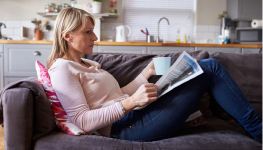
What is the perimenopause?
Dr Samantha Wild talks about the range of symptoms you may get before your periods stop.
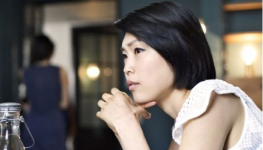
Early menopause and fertility
Early menopause can come as a surprise. Understand how fertility is affected by the menopause.
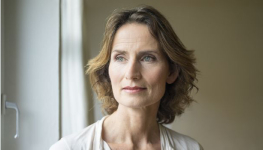
Are my symptoms the menopause?
From brain fog to anxiety, there are lots of symptoms you may be experiencing that could be menopause.
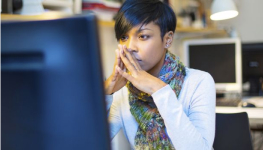
Can menopause happen early?
On average in the UK, menopause begins at 51 but it can happen sooner. Let’s look at some of the signs.

How do I support a loved one during the menopause?
Learn how you can help someone close to you with Dr Wild’s tips on how you can support someone going through the menopause.
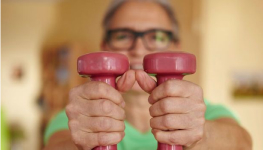
Why is strength training important for menopause?
Physiotherapist, Emma Mitchell, explains the benefits of strength training during menopause.

Can testosterone help with menopause?
Dr Samantha Wild takes us through how testosterone can ease menopause symptoms.

What's the best exercise for menopause?
Menopause symptoms can stop you from feeling your best. Check out our exercise tips to help ease some of the symptoms.
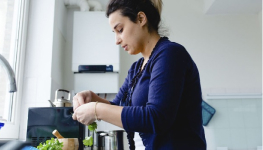
Can your diet reduce symptoms of the menopause?
Dr Samantha Wild talks through how your diet can help you have a healthy menopause.

Hormone replacement therapy - your questions answered
What does HRT do? Is HRT safe? Dr Samantha Wild answers the most common questions about hormone replacement therapy.

Six ways to stay healthy after the menopause
Keeping your body healthy after the menopause is important. Discover six ways to keep healthy from Dr Samantha Wild.
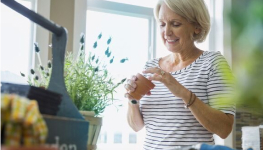
Podcast: Menopause and your mental health
Keeping your body healthy after the menopause is important. Discover six ways to keep healthy from Dr Samantha Wild.
Menopause
Talking about menopause with your GP
Top tips | Treatment | Hormone replacement therapy
Watch in 5 minutes
If you're feeling nervous about talking to your GP about the menopause, don't worry, you're not alone. Bupa's Dr Samantha Wild shares her tips to help you feel more confident and ready for your appointment.
If you suspect that you are perimenopausal or menopausal and your symptoms are impacting your quality of life, then it's a really good idea to speak to a doctor or a nurse for advice and support.
We know that in reality a lot of women are afraid to do this or they don't feel confident, or they might feel like their symptoms will be fobbed off.
So what we're gonna do today is arm you so that you can go to that consultation feeling fully prepared and confident.
I'm joined today by Dr.
Sam Wilde, who's Bupa's clinical lead for women's health.
And this is really common, Sam, isn't it?
There are lots of women who feel frightened almost, or wary of going to see their GP about their symptoms.
Yeah, they really do, and you know, I'd like to reassure them that they're not alone.
They really shouldn't suffer in silence and they shouldn't feel embarrassed to go and see their doctor.
That's what the doctor's there for.
They've seen, they've heard it all before.
So please try and get that confidence to go.
So how can we make it a little bit easier and how can we help people and advise people to prepare in the best way before they go into that appointment?
So as you said, yeah, prepare.
So do as much reading as possible.
Try and do some research so that you understand sort of what symptoms you may be experiencing and have a read about what different treatments might be available as well.
So really try and educate yourself as much as you can.
Try and keep a symptom diary if you can too, because that can really help the GP and you focus on your symptoms and, you know, start straight away to have a look and see what's going on and what might need support.
When you go and book your appointment, ask the receptionist which doctor is the one to see about the menopause.
There's usually a GP within a practise that specialises in it and so do that.
Also ask if it's possible to have a double appointment because this is a lot to talk about.
So some surgeries will allow you to do this.
And also if you do feel that you're gonna be a bit worried about going and you may not take everything in that the doctor's telling you, ask if it's possible to take someone along with you as well and take a partner or a friend with you to the appointment.
I think some really good advice there.
I think also don't always expect everything to be resolved in one appointment.
It may be that you need to go back for another appointment and I think, yeah, your point about receptionists, they are there to help and sometimes they can be the best source of information about who to see, whether it's about menopause or anything else.
What can you expect your doctor to discuss with you at that appointment?
I'd expect them to start by discussing what the menopause is and the different stages of the menopause that can be experienced.
Talk about the different symptoms that you might suffer with and some of the longer term consequences of the menopause as well.
They then will go into greater detail with you about your symptoms and how it's affecting you, and things that you can do to help yourself.
And then after that they may then talk about different medications that can be tried, including hormonal and non-hormonal medications and other therapies such as cognitive behavioural therapy too.
And talk about any side effects that may be experienced from the medications and any risk to taking them as well.
Is there a test that the doctor should be doing to test for menopause?
Not for everybody.
So if you are over the age of 45, then we know your hormones will be changing.
You will go through the menopause at some point as every woman does, and so those hormones are fluctuating minute by minute, hour by hour, so taking a blood test doesn't really give us any additional information.
This is a clinical diagnosis.
For women between the ages of 40 and 45 when it's a little bit younger to start going through it, we might do a blood test if we are unsure of the diagnosis.
And for women under the age of 40, we would definitely do some blood tests just to ensure that this definitely is an early menopause because you may need some additional support to go whilst you're going through it.
Okay.
If people leave that appointment and they feel like they haven't been listened to or they haven't had the outcome that they've wanted, or perhaps they went in there wanting HRT and that hasn't been prescribed, what can they do next?
Speak up.
You know, as doctors, we don't want people to go away feeling disappointed, so speak up, say what the issue is, ask for a second opinion if needed.
And again, if you've done that research first, then hopefully you've got a good understanding and really try and put your point across as why you think that you should be eligible for HRT and try and get that clear answer.
If the doctor doesn't think that you are, why not?
And if you aren't eligible for HRT, they should be giving you different treatment options, and ultimately, you know, you could go and see a menopause specialist, so this may be something that the doctor will offer you, or you could ask for if you aren't happy with the outcome.
Okay, so I think that's really, really helpful.
I guess to summarise the ideas are, do your preparation, be informed, keep a list of your symptoms, kind of be aware of what the doctor's gonna ask and have that information to hand.
And if you're not happy with the outcome, stick your hand up and say so and do something about it.
Definitely, and don't be afraid to do so.
And remember that there are always two experts in that room, the doctor and the patient.
There really is, you know your body the best.
Menopause
Your questions answered.
Symptoms | Hormone replacement therapy | Self-care
Watch in 9 minutes
Hear from Bupa's Clinical Director Dr Petra Simic as she cuts through the confusion by answering common questions on the menopause and the latest thinking about HRT as an available treatment.
With so much information available to women, there is scope for confusion around the menopause and its treatment.
It is natural for you to have questions and to want answers and I would like to help you cut through any confusion to give you information about the menopause and the latest thinking surrounding HRT as a suitable treatment, which your NHS GP may be able to prescribe for you.
There is lots of language used to describe the different stages of the menopause, but what does it all mean and who can it impact? The average age of menopause is 51 and women can experience symptoms for a number of years after that.
There are women who will not become menopausal until their mid to late who will experience the menopause earlier.
If you experience symptoms earlier between 40 and 45, it is referred to as the early menopause.
Many women will experience symptoms sometime before they stop having regular periods we call this the perimenopause.
There are also women who enter the menopause earlier than they otherwise would have done due to treatments they have received for other conditions such as Endometriosis or cancers.
If you reach the menopause before or premature ovarian insufficiency.
Information around treatment for the menopause can also be confusing, particularly around hormone replacement therapy, often referred to as HRT as it is often very general and usually does not always consider the individual risk of women.
HRT is not new, it has been used for treating menopause for around 50 years, starting in the 1970s and in that time there have been many changes.
There are a range of products to choose from and doctors are now very skilled at working with women to work out which hormones they may benefit from and how these hormones would best be given is that in a patch, a gel, an oral medication or through vaginal creams or pessaries, it means that the doses, the formulations and the method of delivery of hormones are now not comparable to the way hormones were used 20 years ago.
HRT has been seen as controversial in the past, mainly due to studies published in the early 2000s which cast a significant shadow on HRT use worldwide.
This resulted in millions of women being advised to stop their HRT treatment and many more millions of women being denied HRT treatment for the decade or so that followed.
The types of hormones used now, the modes of delivery and the population of women we now treat are all different to those observed in the study 20 years ago.
Therefore, it is important that we re-educate a generation of women and their doctors on whom to prescribe hormones to whilst ensuring this is done as safely as possible.
The risk of breast cancer from use of HRT is not as significant as many may believe.
Some studies show that taking combined HRT, that is HRT combining both oestrogen and a progesterone may be associated with a very small increased risk of breast cancer. However, this information has been generally misinterpreted, which has made people fear that the risk is far greater than it actually is, leading women to feel confused and anxious about the perceived risk of breast cancer.
Let us put it into context for those women with an increased risk of breast cancer, i.e. older women, those taking HRT for longer periods of time or those taking older types of combined HRT, the risk of breast cancer is similar to the level of risk associated with any woman not taking HRT who is overweight or drinks around two glasses of wine a day.
So context in this example is really important this is how we better understand the risks. For many women there is no increased risk of breast cancer, such as if they are under 50, if they only need oestrogen, or if they are taking a more modern form of progesterone known as micronised progesterone.
Everyone is susceptible to breast cancer.
Our personal risk is made up of two factors our inherited risk and modifiable risks.
Our inherited risks are made up of factors such as gender at birth, age, family history, we know that women are higher risk than men, older women are higher risk than younger women and some types of family history of cancer can also indicate a higher risk.
We cannot change our inherited risk, however we can change our modifiable risks, we can lower our overall risk of breast cancer.
We have clear evidence that certain lifestyle choices can affect our risk of breast cancer therefore, if we change our lifestyle, we are able to reduce our personal risk. Drinking, alcohol, smoking and being obese are significant risk factors for breast cancer therefore, we can confidently say that by reducing your body fat, limiting your alcohol intake and stopping smoking, you can reduce your personal risk for breast cancer.
Low oestrogen levels caused by the menopause can lead to a number of physical and emotional symptoms, including hot flushes, low libido, night sweats, brain fog, muscle and joint pains and mood swings.
The benefit of HRT is that it can help to ease many of these symptoms and improve your quality of life.
Your doctor may suggest you consider HRT if your symptoms of the menopause interfere with your daily life.
As well as dramatically improving menopause symptoms HRT also reduces your risk of osteoporosis and may help other health problems associated with the menopause, such as cardiovascular disease and stroke.
For the vast majority of women, there is clear evidence that HRT is likely to be more beneficial than potentially harmful.
However, there are a handful of conditions that may affect your ability to take hormones.
So it is important that you have a full consultation with your doctor before you take any medication.
A whole generation of GPs trained or worked as GPs during the 2000s when HRT went out of vogue due to widespread negative press, as a result, some GPs became de-skilled in recognising menopause and prescribing HRT.
Since then, prominent medics and scientists have voiced concerns about the statistics and conclusions drawn from those studies publicised in the 2000s.
Whilst less HRT was being prescribed, a number of other medications, such as antidepressants and supplements were explored to see if they were effective alternatives.
Although some antidepressants have been found to improve hot flushes for some women none of the alternatives have been found to be as effective as hormone replacement. Menopause specialists around the world are now found to be empowering women by providing improved information which allows women to understand their personal risks and benefits when considering whether HRT is right for them.
It is essential that every woman is looked at as an individual, assessing her symptoms and her risks with a professional to share the decision about the best treatment for them.
It is important that women can make their own informed decisions as to how to approach their treatment and that they are offered HRT when appropriate.
If you are experiencing symptoms of the menopause, I would encourage you to read widely on the topic, discuss with friends or family, and understand your own risks and your own thoughts about which treatment or approach appeals to you.
I then recommend that you have a chat with your doctor and together discuss the potential risks and benefits of hormone treatment for you whilst considering what lifestyle changes you could engage in to either manage your symptoms or minimise any risks to your long term health.
HRT can be obtained through your NHS GP, but whether you are a customer or not, there is lots of support which Bupa can offer you, including expert advice and support in our women's health hub and the Bupa Health Clinics Menopause Plan and for Bupa customers, we provide support on any mental health symptoms related to the menopause.
You can also speak to a menopause trained nurse throughout Bupa any time Healthline or a GP through Bupa Digital GP.
As a perimenopausal or menopausal women today please feel reassured that so much more is known about the role of hormones in our general health that you can feel very optimistic about menopause care now and in the future.
Menopause
Living well through the menopause.
Top tips | Treatment | Self care
Watch in 6 minutes
Living well through the menopause can be both physically and mentally tough. Dr Zoe Williams and Bupa’s Dr Sam Wild provide some simple things you can do to feel better and cope with the changes. This includes tips to manage low mood, anxiety, brain fog, hot flushes, and night sweats.
Menopause can bring many challenges and it can have both physical and emotional impacts, but it can also be a time of opportunity, strength, and empowerment.
Today I'm joined by Bupa's, Clinical Lead for Women's Health, Dr.
Sam Wild, who's gonna share with us some ideas for self care and lifestyle changes that women can take to really help support them through this period in their lives.
So, Sam, to start us off, what are the lifestyle changes that women can make?
So there's plenty that women can make.
Let's start with sleep.
So important to have between six and eight hours of sleep at night and even if you're not asleep, just to get that rest in bed and to keep that up at weekends as well.
It's important to keep to the same bedtime and the wake up time.
Next up, diet.
So important to have a Mediterranean-type diet.
We know that that's very healthy for our hearts and our risk of heart disease increases after the menopause.
And also to ensure that you're getting enough nutrients as well, so we can start to get thinning of the bones as we approach the perimenopause, the menopause and post menopause.
So we need to get enough calcium in our diets aiming for two to three portions of calcium-rich foods a day, as well as dairy products, that includes things like green leafy vegetables as well.
And if you're unsure what other products contain calcium, then you can have a look online for a calcium calculator.
And ensure that you get enough vitamin D.
So take a 10 microgram supplement a day of vitamin D, again, helps to keep the bones nice and strong.
Is there anything that you should be reducing or not having in the diet?
Not so much alcohol, that will aggravate hot flushes and night sweats and affect your sleep quality.
Don't smoke and try to avoid too much caffeine if you feel that you are sensitive to that.
What about exercise?
What's the best type of exercise, if there is one?
So really important to give your heart a good workout.
So some aerobic exercise and also some weight bearing exercise to help keep your bones nice and strong and some resistance exercise using weight or your own body weight, which will help to keep your muscle strength too.
What about mood swings and low mood anxiety?
These are really common around the time of menopause.
What can people do to help themselves with those symptoms?
It's really important to speak to your loved ones and your friends and your colleagues about how you're feeling and try and get some support from them.
Again, trying to practise mindfulness can really help.
Meditation, exercise, is brilliant to help calm you down too.
Cognitive behavioural therapy is a very useful type of therapy for this particular issue too.
And I always advise women that it will give you really useful tools for evermore really and to help with family and friends as well.
So definitely worth exploring that as a treatment.
A lot of women suffer in silence, don't they?
But that irritability, it's your loved ones who will feel the brunt of that.
So I always think let them help you, let them in, let them know what you're experiencing.
'cause you are really all in it together.
Absolutely, yeah.
What about memory and brain fog?
That's a really common symptom that a lot of people struggle with.
It is, and I see countless women that come into my surgery complaining and worrying that they're maybe starting to suffer with dementia.
And I reassure them that this is normal and often that on its own is enough.
But women have often found their own ways to manage things.
So list making is is really common.
Again, trying to speak to people around them and explain what's going on.
Maybe using technology as well.
So there's lots of different ways that they can get around this.
And HRT if they choose to take that will help too.
HRT also helps with hot flushes and night sweats, but are there things other than HRT that can also help with that?
Yeah, so again, having your healthy diet, avoiding those things that may aggravate it.
Exercising will help.
Some people choose to try herbal remedies.
Now there's no good evidence that these work, but also there's no good evidence that they don't work either.
They've just not been tested.
So I always advise women to speak to their GP first to make sure it's not going to interfere with any other medications that they're taking.
But then to give it a try, not to spend a fortune on it, but give it a go.
And if it works, then brilliant.
And there are some other prescribed medicines that can be.
.
.
It's quite confusing, but sometimes antidepressants, whilst they don't necessarily help for the low mood associated with menopause, can help with the night sweats and hot flushes.
So for women that can't have HRT or who choose not to have HRT, they may be prescribed antidepressants in these circumstances.
And the final thing I want to ask about is vaginal dryness, 'cause that's a really common symptom, isn't it?
It really is.
And we'd really encourage women to come forward because we know that about 70% are likely to be suffering with this, and yet only 7% receive treatment.
So there's a few things you can do before you see your GP.
You can buy vaginal moisturisers and lubricants over the counter and they can be used together.
So a vaginal moisturiser you'd apply every few days, just like you moisturise your face, you apply the moisturiser and the lubricants you use when you are having sex.
And there's two different types of lubricants.
There's oil based and there's water based.
If you're using condoms, you must avoid the oil ones because it can damage the integrity of those.
But we can find.
.
.
You know, find it helps if a partner, one partner uses the oil based one, one partner uses the water based one, a term that we call slide and glide, which I absolutely love, but people find that works really well.
You can also get vaginal oestrogen.
So you are applying the oestrogen exactly to where it's needed and that can come in different forms.
And again, you can get that over the counter if you fit certain criteria or your GP can prescribe it for you.
And it is different to the other forms of HRT, isn't it?
Just the vaginal oestrogen is safer and some people who can't use patches or take tablets can use that, is that right?
Absolutely.
So for example, women that have breast cancer, they may be able to use topical oestrogen depending on what other treatment they're on.
So something they need to discuss with their specialist but yeah, it might be absolutely fine for them to use it.
Thanks Sam.
We know that HRT is a really helpful treatment, but it's great to know that there are all these things that women can do, whether they're taking HRT or not.
Yeah, and it's absolutely imperative that they do.
We always recommend that they do this, as you say, whether they're taking HRT or not.
Endometriosis support and symptom management
If you think you might have endometriosis, have just been diagnosed, or want to support someone, we’ve got facts and advice for you.
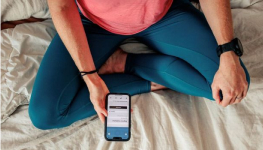
How to keep an endometriosis pain and symptoms diary
Dr Samantha Wild explains what a pain and symptom diary is, why they’re useful and how to keep one.

Fertility and endometriosis
Although this condition can sometimes make it harder to get pregnant, there are fertility options to help.

Living with endometriosis: Michelle Ackerley
TV broadcaster Michelle Ackerley tells us all about living with endometriosis. Learn how she was diagnosed and how she manages the condition day-to-day.
Endometriosis:
Answers on endometriosis with Dr Chris Mann
Common symptoms | Diagnosis | Treatment
Watch in 6 minutes
Consultant Gynaecologist, Chris, talks about symptoms and steps to getting a diagnosis. We also ask about treatments and the best ways to support someone with endometriosis.
Endometriosis matters, it matters to millions of people and their families. It can be extremely painful and affect your quality of life or you could have no symptoms at all.
For many, it is a hidden mystery illness. That is why we have spoken to an endometriosis expert to get you the answers you need.
Endometriosis is a condition whereby cells that are very similar to the lining of the womb called endometrium are found outside of the womb.
We think it affects about one point five million women in the U.K., so approximately 10 percent of the adult female population.
We tend to think of five sets of symptoms. So the first is, do they have very, very painful periods? And I do not mean periods where the pain will be resolved by one or two paracetamol.
The next symptom is do they have pain with intercourse? Typically, this is pain deep within the pelvis, it is at the time of intercourse but it can also be afterwards and it can last from a few hours to up to two or three days.
Does she have pain when she is opening her bowels? This typically is related to the time of the month when they are having a period, but it can also occur leading up to the periods and it can occur around ovulation or even at random between periods.
Are they having pain when they are passing urine? So are they going more frequently? Do they feel like they have got a urinary tract infection even though when they go to the GP's, a dipstick analysis of the urine shows that there is nothing in there; and finally, do they have pelvic pain throughout the month? Do they have pain not when they are on their periods, not when they are going to the toilet, not when they are having intercourse but just throughout the month.
Do they have pelvic pain, do they have bloating, do they have profound fatigue?
As you can imagine, all of these things collectively can have a huge impact, so they can affect their ability to hold down a normal work pattern.
The impact of endometriosis on personal relationships can be extremely profound and this can relate to a number of things.
First and foremost, patients often find it either extremely difficult or impossible to have an intimate relationship with their partner, it is inevitably going to have a negative impact on somebody's mental health and up to 80 plus percent of patients will describe that.
I think it is fairly well established now that it takes around, on average eight years from the onset of symptoms to actually achieving a diagnosis, which from a medical perspective is a huge period of time. Why does it take so long? Well, the symptoms that a patient can exhibit are very, very variable between patients.
Very, very rarely do you get two patients who are just the same and it is important to remember that when you are dealing with endometriosis.
So in order to achieve a diagnosis of endometriosis the gold standard is something called a laparoscopy.
So this is keyhole surgery and it involves the patients coming to hospital either as a day case, sometimes overnight.
They are put to sleep under general anaesthetic and then a small incision is made in the umbilicus or the navel or belly button and that allows the Gynaecologist to look everywhere from the diaphragm down to the pelvic floor and really check to see if there is any endometriosis present.
So as you can imagine, if a patient turns up at the General Practitioner's office, it can be really very difficult for a GP to say, well you have got endometriosis and this is how we are going to manage it.
We are frequently asked, are there any treatments available for endometriosis and the answer is yes, definitely.
I would say that the gold standard treatment is surgical for those patients who are able to undergo surgery and ideally should involve excision or removal of the endometriosis.
If a patient is not able to undergo surgery or is not willing to or can not do or wants to defer it for a period of time there are some medications that can help with the symptoms but it is really important to realise that they do not actually get rid of the underlying condition. So we would typically start with the really simple analgesia regiments such as Ibuprofen or Brufen, Naproxen in combination with Paracetamol.
Now patients may find that that is helpful, they may find that actually it really does not do anything but just take the edge off at the most. So then you are looking at the stronger drugs, so the Codeine based drugs such as Co-Codamol.
The second branch of medicine that could be used to sometimes control the symptoms is hormonal control, so this would involve typically using the combined oral contraceptive pill in a continuous fashion.
How can we make the lives of patients with endometriosis better? Well, I think first of all, we need to be able to talk about it.
Yes, it is a gynaecological condition and yes a lot of people still find it embarrassing or difficult to talk about gynaecological issues.
However, the more we talk about it, the more we get used to it, the more people will understand it, they will accept it and this will help in the management of the diagnosis of endometriosis.
By talking about endometriosis, we can help it feel a little less hidden. Explore more about endometriosis on our Women's Health Hub at bupa.co.uk/womens-health. Because endometriosis matters.
Concerned about symptoms?
With or without insurance, we can help you
If you’re a Bupa health insurance customer
You have unlimited access to GPs and nurses around the clock, who can give you advice and support for any health worries.
Speak to a nurse 24/7 on the Anytime HealthLine by calling 0345 601 3216. We may record or monitor our calls.
On the My Bupa app you can book video or audio GP appointments during the day, evening, weekend and bank holidays.
If you don’t have health insurance with us
No problem. We can still help you on a pay-as-you-go basis. Just pay for the treatment you need, when you need it.
Can Bupa help you take control of your health?
I’m interested in health insurance for myself or my family members
I’m interested in health insurance for my business employees
I want to know more about health subscriptions
I don’t want insurance, but I’m interested in pay-as-you-go services
Legal Disclaimer
This information was published by Bupa's Health Content Team and is based on reputable sources of medical evidence. It has been reviewed by appropriate medical or clinical professionals and deemed accurate on the date of review. Photos are only for illustrative purposes and do not reflect every presentation of a condition.
Any information about a treatment or procedure is generic, and does not necessarily describe that treatment or procedure as delivered by Bupa or its associated providers.
The information contained on this page and in any third party websites referred to on this page is not intended nor implied to be a substitute for professional medical advice nor is it intended to be for medical diagnosis or treatment. Third party websites are not owned or controlled by Bupa and any individual may be able to access and post messages on them. Bupa is not responsible for the content or availability of these third party websites. We do not accept advertising on this page.
Bupa health insurance is provided by Bupa Insurance Limited. Registered in England and Wales with registration number 3956433. Bupa Insurance Limited is authorised by the Prudential Regulation Authority and regulated by the Financial Conduct Authority and the Prudential Regulation Authority. Arranged and administered by Bupa Insurance Services Limited, which is authorised and regulated by the Financial Conduct Authority. Registered in England and Wales with registration number 3829851. Registered office: 1 Angel Court, London, EC2R 7HJ.
Digital GP Services are not regulated by the Financial Conduct Authority or the Prudential Regulation Authority.
The My Bupa App is provided by Bupa Insurance Services Limited which is authorised and regulated by the Financial Conduct Authority (FCA). Registered in England and Wales at 1 Angel Court, London, EC2R 7HJ. Its company number is 3829851. VAT Registration Number: 239731641.
Bupa Digital GP services are provided by Bupa Occupational Health Limited. Registered in England and Wales with registration number 631336. Registered office: 1 Angel Court, London EC2R 7HJ.


